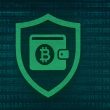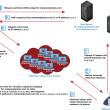You have most probably come across the word VPN (virtual private network). The online tool has become quite popular as it opens up a new world of possibilities. It plays a crucial role when it comes to online privacy, security, geo-restrictions, censorship, and so much more.
So what is a VPN, what does it do, and do you need one? This guide will provide you with a walkthrough and show you some interesting real-life uses.
What is a VPN, and how does it work?
Simply put, a VPN in an online tool that provides a secure and private connection between you and the internet. Secure and Private? Yes!
Whenever you access the internet using your ISP connection, all your online activities are visible to the ISP, the government, and other authorized agencies. On the other hand, cybercriminals can also view all the online resources you access, including what websites you visit and your IP address, which is your online identifier. This address carries a lot of details about you, such as your approximate geographic location, and it can also be easily traced back to you. This means that everything you do online is tied to you!
A VPN eliminates this danger by hiding your IP address and giving you a new one corresponding to a location of your choice. It also encrypts your traffic to make it senseless to your ISP, and secure your connection such that you can’t be compromised by hackers.
How can I use a VPN?
The basic functionality of a VPN, as described above, makes it useful in lots of real-life scenarios.
Stream Geo-Restricted Content on Netflix & other Services
Almost all streaming services enforce geo-restrictions in a bid to comply with the policies of content producers. For example, you can’t access BBC iPlayer outside the UK, or HBO Now outside the US – even if you have a subscription.
Netflix, on the other hand, customizes libraries for each country, with the US boasting the most extensive library. If you’d like to access a movie or series that is not available in your country, all you need to do is connect to a server located in a region where the title is available. Netflix and other streaming services will think that you are located in that particular location. However, you’ll need to choose your VPN carefully as some VPNs are blocked by streaming services.
Use the Internet Anonymously
Ever wanted to search something on Google or visit a website that you’d not want anyone knowing? Well, the incognito tab doesn’t help much. Your ISP will still be able to see and log your data, and other third-parties can still see your IP address.
Since a VPN encrypts your activities and spoofs your IP address, you won’t expose your activities to anyone. Your ISP will only know that you are connected to a VPN, and other third-parties will think that you are located where your VPN server is located. This false presence will let you browse, stream, or torrent anonymously.
Circumvent Censorship
Some governments impose tough internet censorship that restricts users from accessing certain websites and services. For example, you can’t use Skype or WhatsApp to call in the UAE or use Gmail and other Google services in mainland China.
If you have traveled to such a country, you can use a VPN to spoof your location. The same also applies to ISP blocking in other countries, e.g., torrent sites in Australia. However, you will also need to choose your VPN carefully as governments with tough censorships also block traffic from most VPNs.
Better Protection on Public Networks
We all enjoy using free Wi-Fi in parks, hotels, cafés, etc. However, such connections pose huge threats to your security as they are most insecure. They are also a haven for hackers, who, apart from hacking into your insecure connection, can also set up fake hotspots (honeypots) to lure you into connecting. From there, they can easily steal your data or even infect you with malware.
Connecting to a VPN represses this danger as the VPN creates a secure tunnel that can’t be intercepted. This way, you can browse securely.
Find Shopping Deals
Some online retailers do not treat all customers the same. They use anything that they can find about you to dictate prices. This includes your location and browsing habits. Some vendors have even been reported to charge depending on whether you are using a Mac or a PC!
In most cases, prices are determined based on the location, with more affluent countries, cities, or Zip codes being charged more. With a VPN, you can look up prices for different regions and even find deals that are not available in yours. To make sure that you have not been profiled, use your browser in Incognito mode and connect your VPN to the location you’d like.
Do I need a VPN?
If you use the internet, you definitely need a VPN. Apart from benefits, you stand to gain like enjoying a Netflix title that is not in your region, you also need to keep your connection private and secure. From there, you can use the internet with the freedom it was meant to offer!
Did you enjoy reading this article? Do like our page on Facebook and follow us on Twitter.










I honestly believe that VPN is only for security, but then I looked on the website of my VPN provider, and I saw that there are many more use cases. I also found a couple of new ones here, such as shopping, for example. I suppose using a VPN has more benefits than it appears in the beginning.